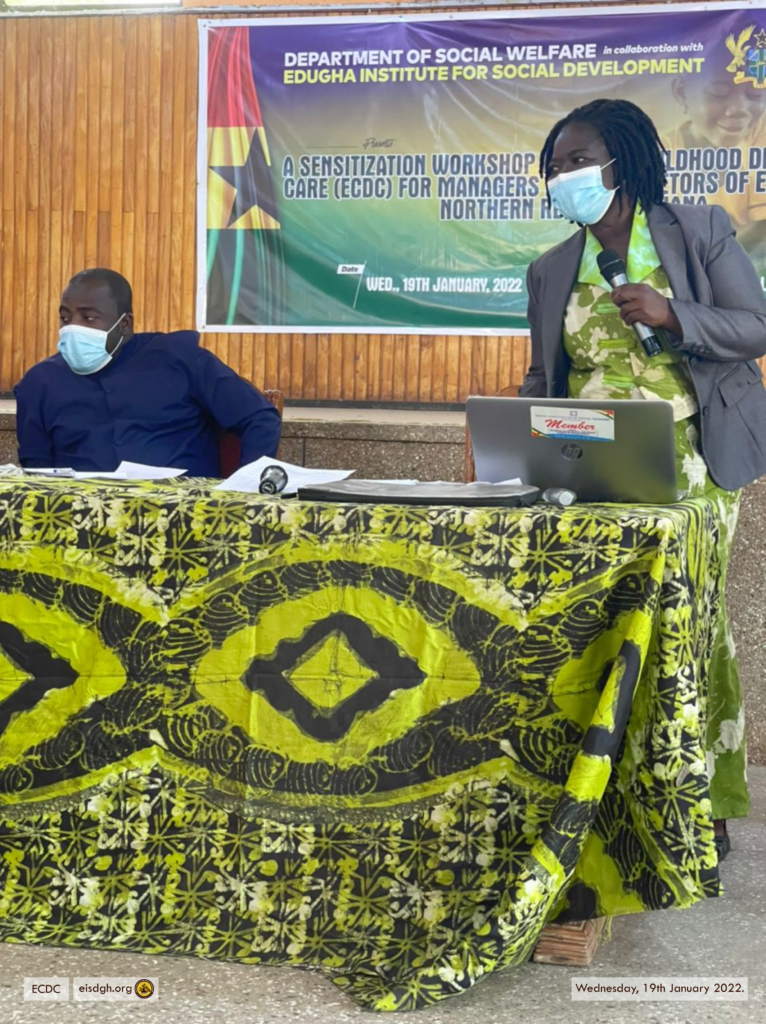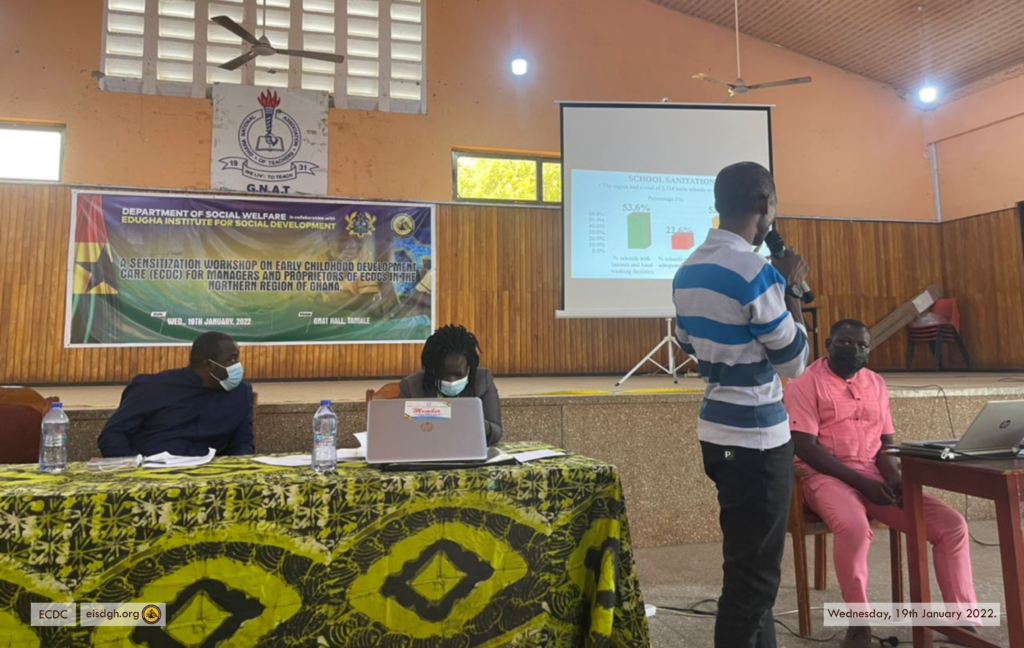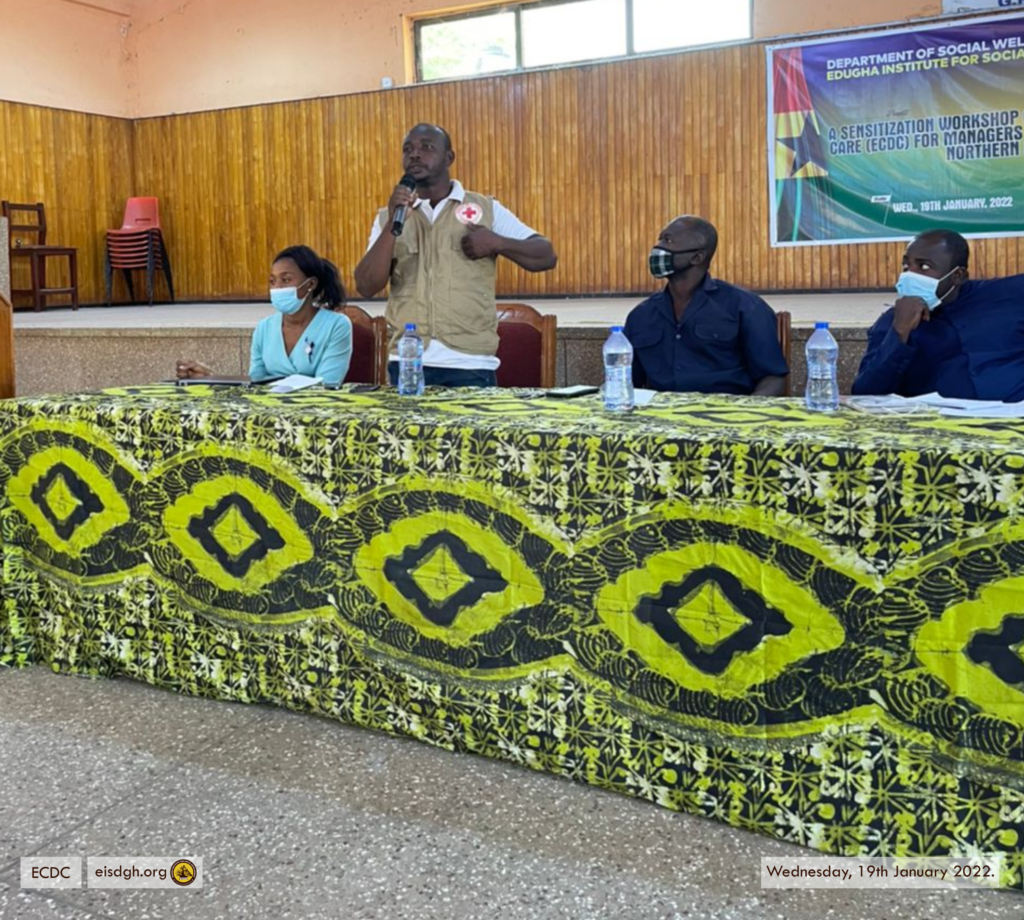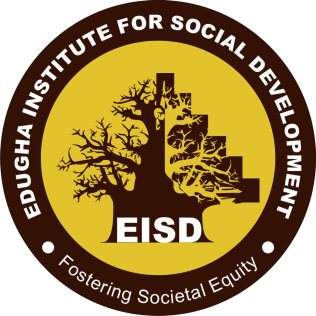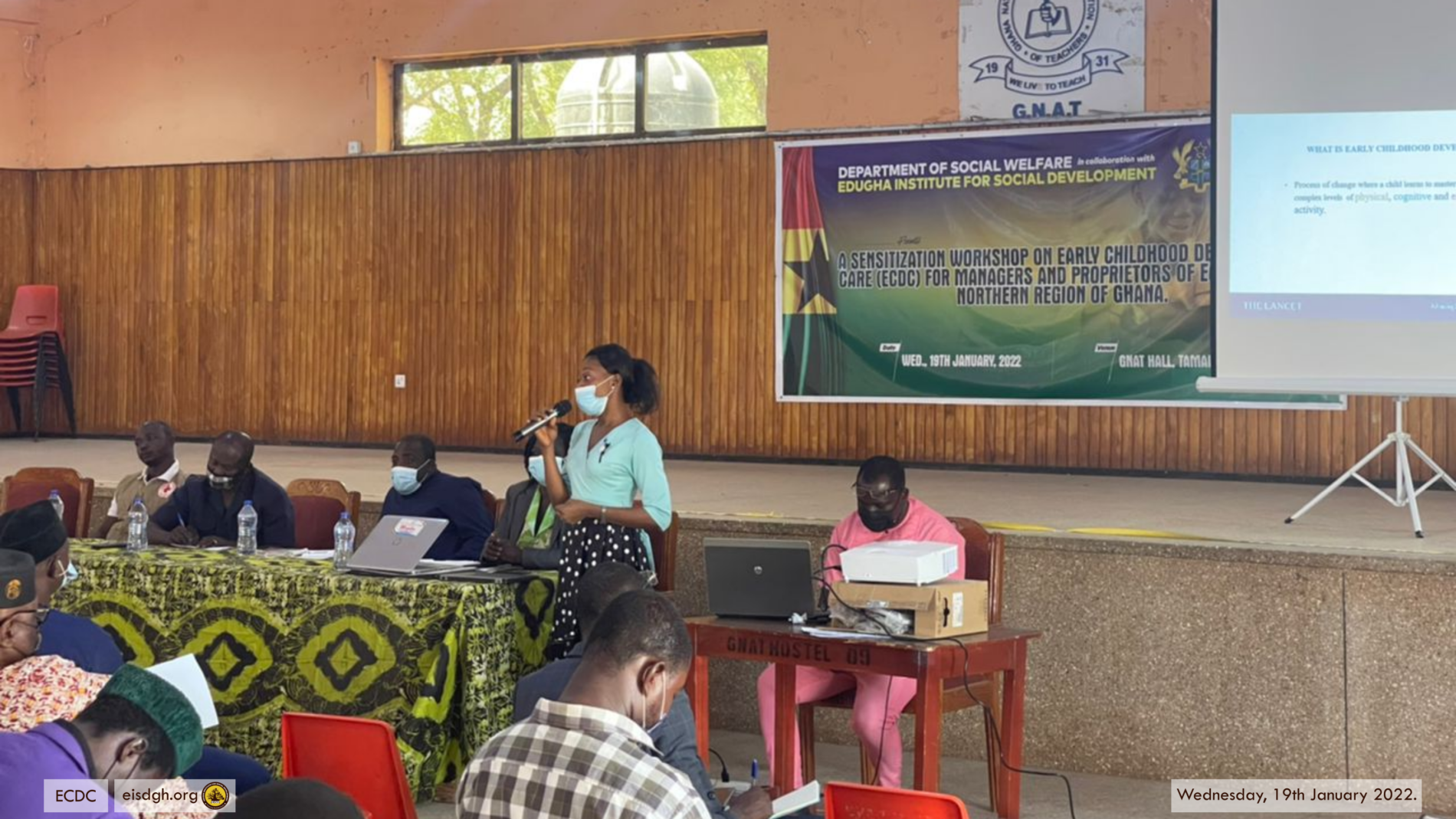The Department of Social Welfare, Northern Region, and the Edugha Institute for Social Development (EISD) collaborated to organize a sensitization workshop for proprietors and managers of Early Child Development Centres on Wednesday, 19th January 2022.
This sensitization workshop was a welcome idea for many private schools, as there has been a gap between the schools and the Department of Social Welfare.
EISD in its bid to promote quality supervision and proper learning environments collaborated with the DSW to make this workshop see the light of day.
The Regional Director Madam Joyce Kulevo educated the schools on the mandate of the Department of Social Welfare and requirements to operate ECDC (The Children’s Act 560 / LI 1705).
She said, “The best interest of the child shall be paramount in any matter concerning a child.”
She spoke on the process schools would have to go through to get registration and certification of ECDCs, supervision, and monitoring for child protection standards, supporting centres to improve care, training of attendants/caregivers and closing substandard ECDCS. She charged the managers and proprietors of ECDCs to see the DSW as partners as the DSW had more roles to play to support the children and their parents/ guardians including maintenance of children, child custody issues, paternity issues, family reconciliation/family welfare services, adoption, poverty alleviation through leap among others.
As part of the workshop, other resource persons including a representative from the Regional Nutrition Department, Madam Joyce Laari and Mr. Haruna from the Ghana Red Cross Society addressed issues of child nutrition and first aid respectively. Mr. Bouri Yahaya, from the Department of Environment and Sanitation, also addressed issues of sanitation ad hygiene in our schools.
The Deputy CEO of EISD, Bilal Taimako Shamsudeen on his part introduced EISD to the participants and explained the cocktail of activities EISD had in store for the proprietors including its Pre-School Teacher Training programme and its tailor-made courses for the 2022 calendar year. He explained the courses were designed to help participants grow their knowledge base, acquire new skills, and increase efficiency on the job whilst interacting with other professionals. In all of this, the participants were encouraged by Mr. Bilal to build networks they could always leverage.
The programs include soft skills training for teachers, identification of and intervention for children with special needs, a well-managed classroom for 21st-century teachers, connecting with students and understanding their emotions, stress management for teachers, first aid techniques for teachers, communication and facilitating skills that make teachers more effective, ethics of teaching, alternatives to corporal punishment in school that work, helping children overcome depression, partnering with parents for student success, building and retaining excellent staff teams, 21st-century school leadership, creating results-driven and child-friendly schools, schools administration, management and development, staff evaluation and monitoring, etc.
The participants/ proprietors on their part bemoaned the slow nature of the processes with the Department of Social Welfare and how these engagements were necessary for all parties involved.
The Regional Director of DSW was happy with the contributions and said she and her team were committed to getting the right things done and supporting the schools to do the right thing.
The Deputy CEO of EISD was also challenged to ensure that the courses were affordable for the schools. A total of one hundred and thirty-eight schools were in attendance.
Snaps from the Event
